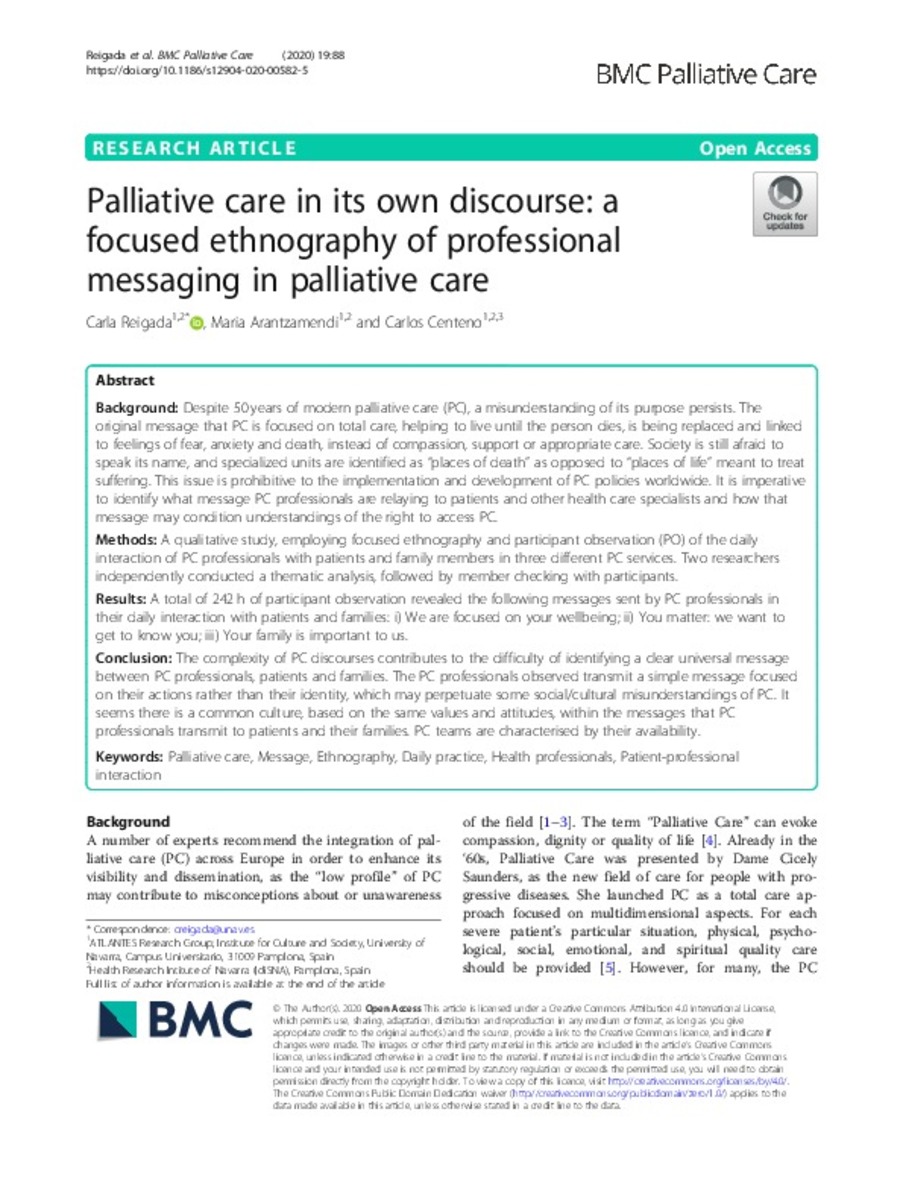Palliative care in its own discourse: a focused ethnography of professional messaging in palliative care
Keywords:
Palliative care
Editorial note:
This article is licensed under a Creative Commons Attribution 4.0 International License, which permits use, sharing, adaptation, distribution and reproduction in any medium or format, as long as you give appropriate credit to the original author(s) and the source, provide a link to the Creative Commons licence, and indicate if changes were made.
Citation:
Reigada, C., Arantzamendi, M. & Centeno, C. Palliative care in its own discourse: a focused ethnography of professional messaging in palliative care. BMC Palliat Care 19, 88 (2020).
Statistics and impact
0 citas en

Items in Dadun are protected by copyright, with all rights reserved, unless otherwise indicated.











